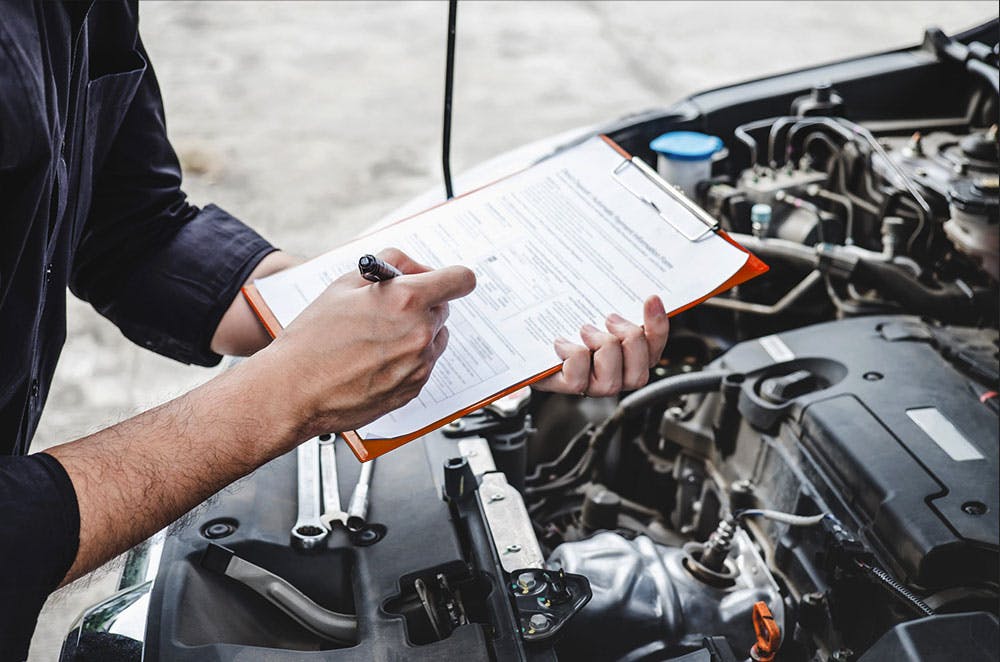All Categories
Featured

Modern automobiles are outfitted with advanced engine control systems (ECUs) that keep an eye on and control different components of the engine. These systems can detect troubles before they become noticeable to the chauffeur, which is where engine diagnostics enter into play. Engine diagnostics is a powerful tool that allows auto mechanics to identify problems early, assisting prevent major repair services and ensuring the longevity of your vehicle. Right here's how engine diagnostics work and why they are vital for preserving your vehicle's health.
- What Are Engine Diagnostics? Engine diagnostics describe the procedure of using specialized devices to assess the performance and keep track of of a lorry's engine. The diagnostic system within a car accumulates data from sensors located throughout the engine and various other vital elements, such as the exhaust, gas, and transmission system. This data is after that refined by the lorry's onboard computer, which can find abnormalities or breakdowns.
Technicians can attach a diagnostic device, usually an OBD-II (Onboard Diagnostics) scanner, to your automobile's ECU to recover error codes and real-time data. These codes indicate particular areas where the engine or other components might be experiencing concerns, also prior to advising lights or efficiency adjustments are visible to the chauffeur.
- Determining Issues Early. One of the most substantial benefits of engine diagnostics is the capacity to determine issues early, often prior to they escalate into major problems. Little issues, such as a misfiring trigger plug, a damaged sensor, or an inefficient fuel injector, can slowly get worse if left untreated. With early detection with engine diagnostics, mechanics can deal with these small concerns prior to they cause considerable damage.
For instance, if a sensing unit finds that the engine is running abundant or too lean (also little or way too much gas), this can cause enhanced wear on engine parts or inadequate gas efficiency. By detecting this very early, the auto mechanic can adjust the air-fuel combination, stopping costly repairs in the future.
- Preventing Engine Damage. Over time, problems with the engine's components, such as the timing belt, exhaust system, or cooling system, can result in severe damages otherwise dealt with immediately. As an example, an overheating engine because of a stopping working radiator or water pump can cause comprehensive interior damages, such as distorted cyndrical tube heads or a blown gasket. Detecting concerns early through the engine diagnostics system can stop these situations from proceeding to disastrous engine failing.
The diagnostic system can likewise discover problems with the exhaust system, such as a malfunctioning catalytic converter, which can bring about inadequate engine performance and ultimate engine damage if not fixed.
- Lowering Repair Work Costs. By recognizing and resolving minor concerns early, engine diagnostics can conserve you significant money on fixings. Fixings tend to be much less intricate and much more cost effective when issues are caught early. Replacing a damaged oxygen sensing unit or cleansing a stopped up gas injector is fairly economical contrasted to replacing a whole engine due to disregard.
Furthermore, engine diagnostics aid avoid unnecessary repairs by identifying the exact reason of the problem. Without diagnostics, auto mechanics may have to carry out considerable testing and trial-and-error methods to diagnose the concern, which can increase both time and expense.

- Improving Automobile Performance and Performance. One more benefit of normal engine diagnostics is that it helps boost your vehicle's efficiency and fuel efficiency. If the engine is running smoothly and all systems are operating optimally, you will certainly experience better velocity, smoother driving, and increased gas economy. Engine diagnostics can reveal concerns such as a blocked air filter, a malfunctioning mass airflow sensing unit, or a damaged ignition system that can hinder your auto's performance.
For instance, a malfunctioning thermostat can trigger your engine to get too hot or not reach its ideal operating temperature level. A diagnostic scan will certainly aid identify this concern early, avoiding overheating and ensuring your lorry runs at its best.
- Why Routine Diagnostics Issue. While several vehicle drivers may think of engine diagnostics as something to do only when the "check engine" light shows up, regular diagnostics must be component of regular automobile maintenance. Numerous car service center and dealerships offer diagnostic checks as part of an annual service or tune-up. Regular analysis scans assist capture problems before they create noticeable signs or failures, eventually protecting against significant repairs down the roadway.
It is also worth keeping in mind that if you're preparing to market or trade-in your automobile, having a current engine analysis record can be helpful. Potential customers or dealers may be much more likely to provide a higher trade-in value or purchase cost if they know the vehicle has actually been well-kept and cost-free of significant engine issues.
- Verdict. Engine diagnostics play an important function in keeping your lorry running efficiently and staying clear of costly repairs. By determining issues early, avoiding engine damage, decreasing repair expenses, and improving efficiency, engine diagnostics guarantee your vehicle stays dependable for many years ahead. Regular diagnostic checks as component of your automobile's regular maintenance will certainly assist you capture small concerns before they develop right into significant repair services, offering you assurance on the road and securing your financial investment.
Latest Posts
Identifying When Your Car Needs Expert Vehicle Service at Montclare Auto Repair
Published May 26, 25
1 min read
Learn How to Cut Costs on Car Maintenance with Montclare Auto Repair’s Limited-Time Deals
Published May 24, 25
1 min read
Protect Your Home with Quality Residential Roof Covering
Published May 23, 25
1 min read
More
Latest Posts
Identifying When Your Car Needs Expert Vehicle Service at Montclare Auto Repair
Published May 26, 25
1 min read
Learn How to Cut Costs on Car Maintenance with Montclare Auto Repair’s Limited-Time Deals
Published May 24, 25
1 min read
Protect Your Home with Quality Residential Roof Covering
Published May 23, 25
1 min read